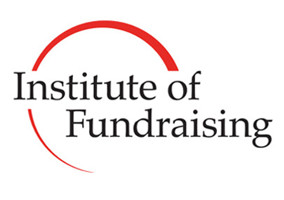Following on from the publication of her report Good Asking: The role of research in efficient, effective and enjoyable fundraising yesterday, Beth Breeze outlines why research is both important and necessary.
Picture the scene: a fundraiser has managed to get a meeting with a wealthy and generous businessman. She turns to the man with blond leonine locks and says: “Hello Mr. Branson. And what do you do?”
This may sound absurd, but whilst the business activities of the Virgin founder may be hard to avoid, getting up to speed on his charitable interests and potential connections to the fundraiser’s organisation would likely involve some research. And knowing anything at all about the estimated 500,000 millionaires and 120 billionaires who live in the UK - and who keep a much lower profile than Barack Obama’s holiday host - is reliant on the ability to do some basic fact-finding.
Yet the research activity that allows fundraisers to understand and prepare before approaching or meeting a potential donor has come under recent scrutiny. My new report, Good Asking: the role of research in efficient, effective and enjoyable fundraising, was commissioned by the Institute of Fundraising to help shed light on why fundraisers need to do research, what that involves and what it achieves. The study, based on an online survey of 347 fundraisers, finds that research is an essential part of modern, professional fundraising that enables three positive outcomes:
1. More efficient and effective use of charitable funds spent on fundraising.
2. Better experiences for potential donors and donors.
3. Greater ability to fulfill the charitable mission and serve more beneficiaries.
What is fundraising research?
Fundraising research can be as simple as typing a name into Google or can involve engaging expert consultants, but it boils down to using publicly available information to work out who is most likely to be interested in a cause and most able to offer support. This is the opposite of the scattergun, ‘spray and pray’ approach that can cause offence and distress because of the obvious waste of charitable resources, and the nuisance of dealing with unwanted requests. As one fundraiser explains:
“If a charity decides to hold an event to inspire interest in its work, is it better to invite any 100 people to attend, or to try and find the 100 people with the warmest connection to the charity and the biggest capacity to give?”
Whilst the latter option seems obviously the better plan, it cannot happen without doing some research.
Research is not to 'hound the rich'
The purpose of research is not – as critics assume – to sniff out and hound the rich. Rather, the goal is to work out which of those people with the ability to give, also has a demonstrable interest in the cause and any existing connections to the charity. Indeed, my study highlights that good research results in many names being ruled out from fundraising approaches because there is no indication of interest. This saves the charity wasting money and time on contacting people with little likelihood of offering support, and saves those on the receiving end from dealing with unwanted approaches.
A second, and equally important, goal is to provide potential donors with the best possible experience by approaching them in a way that takes account of their personal interests, likes and dislikes. As a fundraiser explains:
“If there is information in the public domain that suggests a person loves to play golf, then that gives me a reason to invite him to a charity golf event; I would not invite him to the cricket.”
Research continues to be important once it is clear someone wishes to offer support, as another fundraiser explains:
“If we know they play the trombone, we can ask them to support the chair of our principal trombonist rather than the harp player.”
'Charities need money to exist'
And the third goal is the most crucial of all: conducting research enables fundraisers to raise the voluntary income needed to fulfill the charitable mission, and help more of the charity’s beneficiaries. Charities do not exist to raise money, but they do need money to exist: it’s a subtle but profound difference. As another fundraiser explains:
“Failing to spot a major donor… represents a missed opportunity for your charity to secure funding for important work.”
There are therefore many advantages of doing fundraising research: to spend charity funds wisely, to give donors the best experience, and to serve beneficiaries as well as possible. Yet the scrutiny that has hit charities doing research in recent months has had a big impact. No charity fundraiser I have met knowingly breaches the regulations, and they do strongly believe that donors understand and appreciate this effort, with a typical comment being: “I've never met a donor or potential supporter who wouldn't expect me to be prepared for a meeting with them.”
This report shows that good, ethical and legally compliant research is not a matter for concern but for celebration. It is vital for charities, their donors, and most importantly, their beneficiaries.
Civil Society Media would like to thank the Institute of Fundraising for their support with this article.
Related articles











